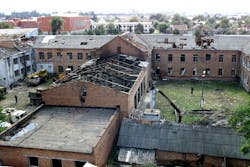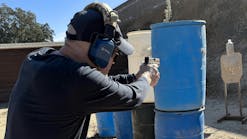On the second day of the hostage crisis negotiations between Roshal and the terrorists proved unsuccessful; indeed, as the resulting outcome of the siege readily demonstrates, negotiations were never of any practical value. It will never be known whether either party taking place in the negotiations were negotiating in good faith or simply buying time. For military and law enforcement negotiators, talking is often a tactic to buy time for those planning an assault the necessary time to plan, prepare and execute such an action. For the terrorists, the longer the event stretches out, the greater attention to their cause is received. From that perspective, outside of a quick resolution and release of all hostages, neither party benefits from negotiations.
Now more than 24 hours into this siege event, the hostage-takers continued to disallow the taking of food, water, and medicine to the hostages inside the school. Within the school itself, while there were abundant (and common) water fountains, the terrorists denied the hostages access to such. Imagine, if you can, the horrific feeling created in an overly fatigued hostage – the mother of a small child – who can SEE the water fountain and KNOWS that both she and her child are dehydrated to the point of or beyond severe discomfort, but doesn’t dare make a move toward it because doing so will get she and perhaps her child shot.
- - - - - - - - - -
The remainder of this article is part of the book "Active Killers and the Crimes They Perpetrated," available in print or ebook via Amazon.

Joshua Borelli
Joshua Borelli has been studying active shooter and mass attack events over the course of the past several years, commensurate with receiving training on response and recovery to natural disasters and civil disturbances. Joshua started to outline this series of articles in an attempt to identify commonalities and logistical needs patterns for response.



